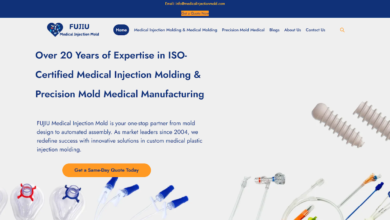WHAT YOU SHOULD KNOW ABOUT DETOX AND REHABILITATION FACILITIES BEFORE ENROLLING

Let’s say you or a loved one suffer from drug or alcohol addiction. In that scenario, you might apply to a detox and treatment facility. What are these facilities, and what can you expect from them? Here are some details and advice to help you decide.
What do detox and rehab facilities do?
Substance use disorders (SUDs) are treated medically and psychologically in detox and rehabilitation facilities. They are designed to help people quit drugs or alcohol. They deal with withdrawal symptoms, address addiction’s root causes, and learn coping mechanisms to avoid relapsing.
Depending on the degree of care, the program length, the cost, and the amenities, there are various types of detox and rehabilitation facilities.
Residential
Residential centers are where you stay for a specific amount, typically a few weeks or months. You receive various therapies and activities, staff and peer monitoring, and support around the clock. People who need an organized and safe environment to recover from severe or long-term SUDs can consider residential programs.
Outpatient programs
When you live at home or in a sober living facility, you may visit outpatient programs once or twice a week for a few hours. In contrast to residential programs, you have more flexibility and freedom while still receiving counseling, medicine, education, and other services. People with mild or severe SUDs or employment, school, or family responsibilities should consider outpatient facilities.
Detox facilities
These facilities specialize in assisting clients who want to quit alcohol or drugs. They offer medical supervision, medication, fluids, and comfort measures to lessen detoxification’s adverse effects. Detoxification facilities are often used before rehabilitation programs and are typically short-term (a few days to weeks).
Luxury facilities
These include upscale services and amenities like private rooms, gourmet meals, spa treatments, workout centers, and complementary therapies. People who can afford them can enjoy luxury centers’ comfort and seclusion. They may not always provide better results than other centers.
What Advantages Do Detox and Rehabilitation Facilities Offer?
For those with SUDs, detox and rehabilitation facilities can provide several advantages, including:
• Medical care: For those who require it, detox and rehabilitation facilities can offer medical services, including medication-assisted therapy (MAT), which uses FDA-approved medications to lessen cravings and withdrawal symptoms. Additionally, co-occurring illnesses like anxiety or depression that fuel addiction can be treated with MAT.
• Psychological care: For those who require it, detox and rehabilitation facilities can offer cognitive-behavioral therapy (CBT), which enables patients to recognize and alter harmful attitudes and conduct that feed addiction. A relapse may be triggered by stress, trauma, anger, guilt, shame, and other feelings that CBT can help patients deal with.
• Social help: For those who require it, detox and rehabilitation facilities can offer social assistance through peer groups, family counseling, 12-step programs, or other mutual aid organizations. You can learn from others in these groups, share their experiences, get feedback, and develop a network of sober friends.
• Life skills: For those who require them, detox and rehabilitation facilities can offer life skills like relapse prevention strategies, communication skills, problem-solving skills, time management skills, and vocational abilities. People can use these talents to continue their recovery, strengthen their bonds with others, and accomplish their objectives.
What Problems Do Detox and Rehabilitation Facilities Face?
For those with SUDs, detox, and rehabilitation facilities might provide additional difficulties, such as:
• Price: Depending on the type, length, location, and insurance coverage, detox, and rehabilitation facilities can be costly. Some people might be unable to afford them or pay for some services out of pocket.
• Availability: Some places may not have detox or rehabilitation facilities, lengthy waiting lists, or strict admission requirements. Some people might not have access to them, have to travel a long distance, or even move to seek treatment.
• Stigma: In some cultures or groups, where addiction is viewed as a moral failing or a personal weakness, detox, and recovery facilities may carry a stigma. Some persons could experience prejudice or criticism from their relatives, friends, coworkers, or society for seeking or obtaining therapy.
How do I pick a detox and rehab facility?
Here are some suggestions to help you choose a detox and rehabilitation facility:
• Do your homework: Find out more about detox and rehabilitation facilities online, in directories, or by asking your doctor, therapist, or other reliable sources for recommendations. Compare their policies, offerings, prices, and results. If possible, visit the center in person or read reviews from previous visitors. Inquire about staff qualifications, treatments, success rates, and aftercare strategies.
• Be aware of your objectives: Consider what you want to get out of therapy, such as quitting drugs or alcohol or cutting back to a manageable level. You’ll find new hobbies or interests, rebuild your relationships or job, or be healthier.
Select a facility that supports your objectives and provides individualized treatment regimens considering your needs and preferences.
• Seek expert counsel: Speak with your doctor or therapist before applying to a detox or rehabilitation facility. They can help you evaluate your condition and advise on the appropriate kind and amount of care for you. They can also help you get ready for treatment by prescribing medicines or, if necessary, setting up referrals.
Conclusion
Although they are not the only options for treating SUDs, detox and rehabilitation facilities are effective for many patients. To assist you in overcoming addiction and leading healthier, happier lives, they can offer medical and psychiatric care, social support, and life skills. Centers for detoxification and rehabilitation have price, availability, quality, and stigma limitations. Some people could be put off from seeking them by these drawbacks. Therefore, before selecting a detox or rehabilitation program, it is wise to do your homework, know your goals, and get competent guidance. Remember that recovery calls for dedication, effort, and others’ assistance.
Resources: https://www.samhsa.gov/



